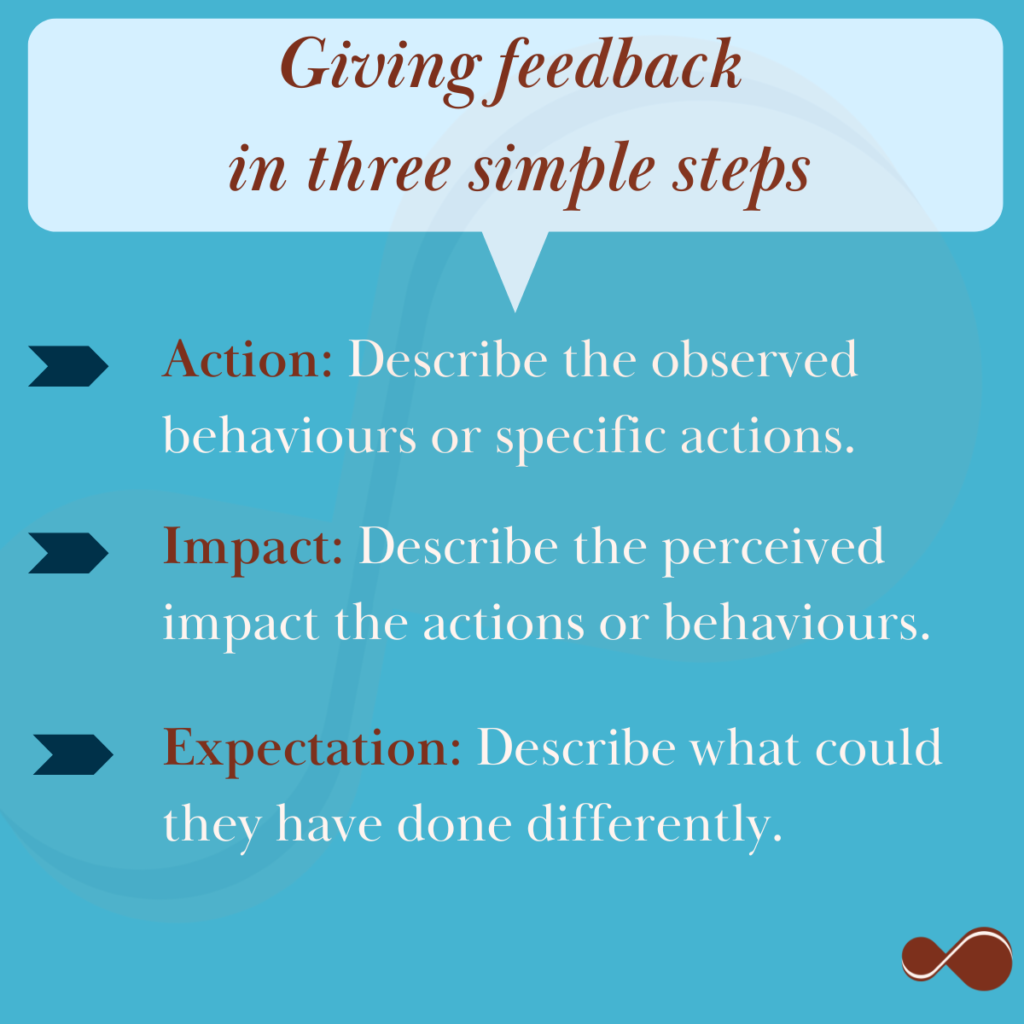Self-awareness is the key to becoming an authentic leader, and feedback allows you to become more self-aware. Effective feedback is crucial for improving work culture, behaviour, and productivity. It’s the linchpin for fostering a safer and more inclusive work environment. Feedback has numerous benefits for improving all spheres of our personal and professional life. For an authentic leader, giving and receiving feedback provides countless advantages. Effective feedback can significantly improve employee engagement, help promote a positive workplace culture and facilitate better communication between managers and staff.
Why effective feedback is important?
Effective feedback can be delivered in three ways positive, negative or neutral, examples such as a compliment (positive), a corrective or a measure (negative) or a general observation (neutral). Regardless of the way, good feedback always origins from the heart and is helpful to the receiver. Effective feedback provides recipients insight, suggestions or guidance that contribute to desired outcomes.
While delivering feedback – it’s essential to be supportive, encouraging and specific on the direction needed to change or improve. Giving and receiving clear, effective feedback is an invaluable skill for leaders and managers. It allows you to rapidly improve your skills and productivity in a new role and is a vital leadership skill if you’re looking to take on supervisory & senior positions. Giving clear, constructive feedback in a supportive manner and receiving feedback in the same spirit will make you a solid asset to any employer.

How to give meaningful feedback?
Giving feedback is an important workplace skill for leaders & managers, and here’s how to give it effectively:
Focus on the purpose
Feedback must be useful to the receiver, so keep it positive & constructive and have a good reason to give it. Be clear about the outcome you hope to achieve. Provide feedback with the intent & desire to coach or guide, and commitment to support and watch them grow.
Focus on behaviour(s) and not the individual
Feedback should target behaviours and not the person or individual’s personality. Avoid making comments directed at personas or information; rather, keep the focus on conversation focused on the situation/behaviour needing discussion or change. Point out how the exhibited behaviour affects the workplace or team or others around.
For example, you can let the person know when they did or said something and how it affected those around them.
Be open & ask questions.
Start the conversation with open questions, and invite the other person into the discussion. Allow them to clarify and describe their point of view. Assess their understanding of the situation and hear their point of view.
Be specific
Describe clearly your understanding of the situation by using specific & detailed examples. Explain to the receiver the behaviour(s) behaviours that need to change or continue. Be specific & focus on the exact problem
or circumstance that needs addressing.
Be timely
Feedback is most useful when given soon after a specific behaviour/situation is observed. Early feedback offers better transparency and allows receivers to implement necessary behaviours to address concerns. Similarly, issuing timely praise reinforces positive performance.
Be aware of the moment.
Although it is good to deliver feedback early, the best time to give feedback is not when emotions are high. It can be worth waiting for a moment when the receiver is more open to hearing feedback and you are in the right emotional state to give it constructively and helpfully.
Reference:
A Complete Guide to Giving Constructive Feedback (Examples) | Indeed.com
